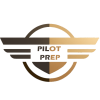So your pilot interview is going well, your final question is almost always going to be “Do you have any questions for us?”. This is your opportunity to show how well you’ve researched your chosen airline and a chance to pose one, maximum two, well thought-out questions.
Please, for the love of god, don’t ask a question like “What are the next steps?” or, “How much is the year 1 salary?”, or “How does Staff Travel work?” or any other question that is not relevant or can be easily googled.
This blog post will guide you through developing a tailored, insightful question that goes beyond the generic and showcases your dedication and insight into the aviation industry and your chosen airline.
Research and Preparation
Start with thorough research on the airline. Look into their press releases within the last year, financial reports, and industry news. Has the airline recently announced a surge in profits? Have they ordered new aircraft hulls? Have they invested heavily into internal infrastructure? Conversely, have they just announced layoffs? Is there a problem with the aircraft manufacturers (Boeing strikes etc.). Keep your finger on the pulse and read the news! I personally read The Financial Times (no affiliation) if you’re after a recommendation.
Understand the airline’s challenges, opportunities, and strategic direction. Are they investing in new aircraft technologies? Have they announced initiatives to improve sustainability or passenger experience? Are they targeting more European, Asian, North American destinations? This research will form the foundation of your question, ensuring it’s both relevant and insightful.
Tailored Questions for the Airline Pilot Role
Below are some examples of questions you might pose to your interviewers. Please tailor them to suit your needs and don’t copy them verbatim. Thousands of people see this website daily so it’s likely the interviewers will know if you repeat the question word for word.
1.Technological Innovations and Investments
Given the fast-paced technological advancements in aviation, showing an interest in how the airline keeps abreast of these changes demonstrates your commitment to safety, efficiency, and innovation. For example:
- “I’ve seen the airline’s investment in next-generation aircraft to enhance fuel efficiency and reduce carbon footprint. Can you share how these advancements are being integrated into pilot training and operations? Do you do single engine taxi operations?”
2. Safety and Training Initiatives
Safety is paramount in aviation. Asking about this topic is never a bad option and shows your priority aligns with the airline’s. You might ask:
- “With the evolving global safety standards and increase of evidence based training, how does the airline’s pilot recurrent training program adapt to ensure pilots are equipped with the latest knowledge and skills?”
3. Airline’s Vision and Strategic Goals
Understanding where the airline aims to be in the future can provide insights into your potential career path. You could ask:
- “Considering the airline’s current expansion plans into XX market, how do you see the role of pilots evolving in aligning with these strategic goals?”
4. Airline’s Culture and Values
A question about the airline’s culture shows you’re looking for a good fit and not just any job. All airlines fly planes, the culture is what makes them different. For instance:
- “Can you describe how the airline’s core values are reflected in the day-to-day operations and decision-making within the cockpit?”
5.Challenges and Opportunities
This shows you’re thinking ahead, and as pilots, we’re always thinking ahead. A thoughtful example could be::
- “Given the increasing emphasis on sustainable aviation, what are the biggest challenges the airline faces in this area, and how are pilots being involved in addressing these challenges? Especially business travel customers seeing more pressure from shareholders to reduce carbon footprints.”
Avoid Generic Questions
While it’s essential to prepare questions, ensure they are not too generic, easily found on the airline’s website, or irrelevant to the role. Questions about salary, benefits, or the next steps in the interview process should be avoided at this stage. Such questions can imply that your interest is more in the position’s perks than the role itself.
Remember, your chosen airline is a business, not a charity. Not only are you figuring out what the airline can offer you, but also what you can offer in return! After all, the airline is looking to you as a future captain and representative of the company.

Crafting Your Question
When formulating your question, keep it open-ended to invite discussion rather than a simple yes or no answer. The same methodology will be used on the flight deck, avoiding leading and closed questions. This approach encourages the interviewers to share more information and engage in a meaningful conversation. Frame your question to show that you’ve done your homework and are genuinely interested in the airline’s operations, culture, and the specific role of a pilot within the organization.
Practice and Delivery
Practice your questions just as you would your answers to other interview questions. Consider how you will phrase the question and anticipate possible follow-up discussions. Your delivery should be confident and articulate, demonstrating your genuine interest in the role and the airline.
As with the self introduction, keep the questions relatively brief. The more information you give in your questions, the more information your interviewers will have to remember! You don’t want to stress your interviewers out, you want to invite open and interesting discussion.
Closing Thoughts
The closing interview question, “Do you have any questions for us?” is more than a formality; it’s a golden opportunity to distinguish yourself as a thoughtful, engaged, and knowledgeable future captain. For aspiring airline pilots, it’s a chance to demonstrate your understanding of the aviation industry, your interest in the airline’s future, and your alignment with its values and challenges.
By preparing a tailored, insightful question, you show your commitment to not only securing the role but also contributing to the airline’s success. Remember, in aviation, it’s not just about the answers you provide but also the questions you ask. The same will be true throughout your careers on the flight deck.

